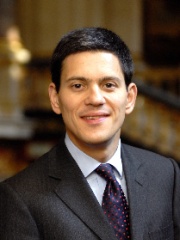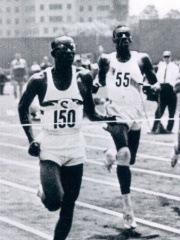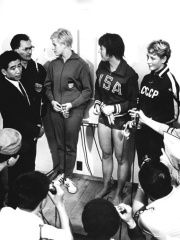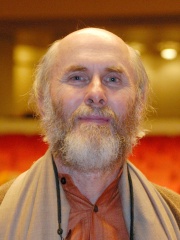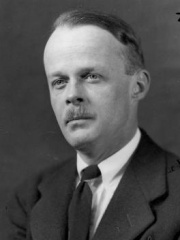Writer
Kevin Poulsen
1965 - today
EN.WIKIPEDIA PAGE VIEWS (PV)
 Kevin Poulsen
Kevin Poulsen
His biography is available in 22 different languages on Wikipedia (up from 20 in 2024). Kevin Poulsen is the 6,824th most popular writer (down from 6,666th in 2024), the 14,325th most popular biography from United States (down from 13,269th in 2019) and the 1,017th most popular American Writer.
Memorability Metrics
Page views of Kevin Poulsen by language
Among Writers
Among writers, Kevin Poulsen ranks 6,824 out of 7,302. Before him are Julie Otsuka, Walter Mosley, Raquel Sánchez-Silva, Federico Andahazi, Richard A. Knaak, and Randall Jarrell. After him are Robert Hunter, Koushun Takami, Michal Viewegh, Michael Arndt, Calixthe Beyala, and Milan Ohnisko.
Most Popular Writers in Wikipedia
Go to all RankingsJulie Otsuka
1962 - Present
HPI: 47.73
Rank: 6,818
Walter Mosley
1952 - Present
HPI: 47.72
Rank: 6,819
Raquel Sánchez-Silva
1973 - Present
HPI: 47.72
Rank: 6,820
Federico Andahazi
1963 - Present
HPI: 47.71
Rank: 6,821
Richard A. Knaak
1961 - Present
HPI: 47.69
Rank: 6,822
Randall Jarrell
1914 - 1965
HPI: 47.68
Rank: 6,823
Kevin Poulsen
1965 - Present
HPI: 47.68
Rank: 6,824
Robert Hunter
1941 - 2019
HPI: 47.68
Rank: 6,825
Koushun Takami
1969 - Present
HPI: 47.68
Rank: 6,826
Michal Viewegh
1962 - Present
HPI: 47.67
Rank: 6,827
Michael Arndt
1970 - Present
HPI: 47.67
Rank: 6,828
Calixthe Beyala
1961 - Present
HPI: 47.67
Rank: 6,829
Milan Ohnisko
1965 - Present
HPI: 47.66
Rank: 6,830
Contemporaries
Among people born in 1965, Kevin Poulsen ranks 711. Before him are John Murphy, Anja Niedringhaus, Matt Servitto, Jari Sillanpää, Roger Avary, and Zbigniew Spruch. After him are Kumiko Watanabe, Mohammed Achik, Milan Ohnisko, Peter Safran, David Miliband, and Rodolfo Massi.
Others Born in 1965
Go to all RankingsJohn Murphy
COMPOSER
1965 - Present
HPI: 47.81
Rank: 705
Anja Niedringhaus
JOURNALIST
1965 - 2014
HPI: 47.75
Rank: 706
Matt Servitto
ACTOR
1965 - Present
HPI: 47.74
Rank: 707
Jari Sillanpää
SINGER
1965 - Present
HPI: 47.73
Rank: 708
Roger Avary
FILM DIRECTOR
1965 - Present
HPI: 47.73
Rank: 709
Zbigniew Spruch
CYCLIST
1965 - Present
HPI: 47.72
Rank: 710
Kevin Poulsen
WRITER
1965 - Present
HPI: 47.68
Rank: 711
Kumiko Watanabe
ACTOR
1965 - Present
HPI: 47.68
Rank: 712
Mohammed Achik
ATHLETE
1965 - Present
HPI: 47.67
Rank: 713
Milan Ohnisko
WRITER
1965 - Present
HPI: 47.66
Rank: 714
Peter Safran
PRODUCER
1965 - Present
HPI: 47.66
Rank: 715
David Miliband
POLITICIAN
1965 - Present
HPI: 47.64
Rank: 716
Rodolfo Massi
CYCLIST
1965 - Present
HPI: 47.63
Rank: 717
In United States
Among people born in United States, Kevin Poulsen ranks 14,329 out of NaN. Before him are Chelsea Peretti (1978), Richard A. Knaak (1961), Ralph Beard (1927), Nicola Peltz (1995), David Dukes (1945), and Randall Jarrell (1914). After him are Robert Hunter (1941), Martha Layne Collins (1936), Lake Bell (1979), Ulis Williams (1941), Jake Abel (1987), and Lesley Bush (1947).
Others born in United States
Go to all RankingsChelsea Peretti
ACTOR
1978 - Present
HPI: 47.69
Rank: 14,323
Richard A. Knaak
WRITER
1961 - Present
HPI: 47.69
Rank: 14,324
Ralph Beard
BASKETBALL PLAYER
1927 - 2007
HPI: 47.69
Rank: 14,325
Nicola Peltz
ACTOR
1995 - Present
HPI: 47.69
Rank: 14,326
David Dukes
ACTOR
1945 - 2000
HPI: 47.69
Rank: 14,327
Randall Jarrell
WRITER
1914 - 1965
HPI: 47.68
Rank: 14,328
Kevin Poulsen
WRITER
1965 - Present
HPI: 47.68
Rank: 14,329
Robert Hunter
WRITER
1941 - 2019
HPI: 47.68
Rank: 14,330
Martha Layne Collins
POLITICIAN
1936 - 2025
HPI: 47.68
Rank: 14,331
Lake Bell
ACTOR
1979 - Present
HPI: 47.68
Rank: 14,332
Ulis Williams
ATHLETE
1941 - Present
HPI: 47.68
Rank: 14,333
Jake Abel
ACTOR
1987 - Present
HPI: 47.68
Rank: 14,334
Lesley Bush
ATHLETE
1947 - Present
HPI: 47.68
Rank: 14,335
Among Writers In United States
Among writers born in United States, Kevin Poulsen ranks 1,017. Before him are David Frawley (1950), Dan Barker (1949), Julie Otsuka (1962), Walter Mosley (1952), Richard A. Knaak (1961), and Randall Jarrell (1914). After him are Robert Hunter (1941), Michael Arndt (1970), Terrence McNally (1938), Allen Tate (1899), Tom Kapinos (1969), and Stephen Chbosky (1970).
David Frawley
1950 - Present
HPI: 47.76
Rank: 1,011
Dan Barker
1949 - Present
HPI: 47.74
Rank: 1,012
Julie Otsuka
1962 - Present
HPI: 47.73
Rank: 1,013
Walter Mosley
1952 - Present
HPI: 47.72
Rank: 1,014
Richard A. Knaak
1961 - Present
HPI: 47.69
Rank: 1,015
Randall Jarrell
1914 - 1965
HPI: 47.68
Rank: 1,016
Kevin Poulsen
1965 - Present
HPI: 47.68
Rank: 1,017
Robert Hunter
1941 - 2019
HPI: 47.68
Rank: 1,018
Michael Arndt
1970 - Present
HPI: 47.67
Rank: 1,019
Terrence McNally
1938 - 2020
HPI: 47.63
Rank: 1,020
Allen Tate
1899 - 1979
HPI: 47.62
Rank: 1,021
Tom Kapinos
1969 - Present
HPI: 47.62
Rank: 1,022
Stephen Chbosky
1970 - Present
HPI: 47.61
Rank: 1,023






















